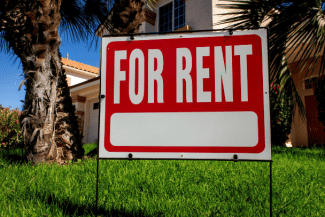Should You Accept Section 8 As A Landlord?

Advantages Of Accepting Section 8
The biggest perk of accepting Section 8 subsidies is the fact that a substantial part of the rent money you are owed will show up reliably and on time each and every month. The portion of the rent that the government will pay is dependent upon a few different factors but is usually between 40% and 70% of the total. The rest of the rent will be up to your tenant to pay, but with Section 8 subsidies, you at least know that you will receive rental income monthly, even if your tenant slips into paying late.
Another major advantage to accepting Section 8 is that it opens you up to a whole new market of potential tenants, many of whom can’t afford to rent anything that isn’t subsidized. This can give you a competitive advantage over other landlords in your area who do not accept government subsidies. Contrary to popular belief, you can also screen these potential tenants just as you would any other tenants, and you can even rent your property out to someone without Section 8 just as you normally would. In many ways, the benefit of Section 8 is just as great to landlords as it is to the tenants it assists.
Disadvantages Of Section 8
While few and comparatively minor, there are some disadvantages to accepting Section 8. The first of these is that you may have to wade through some red tape to get accepted. In order to be approved as a Section 8 landlord, you will have to undergo a full home inspection and set your rental rate according to the range of average prices in your area. This isn’t a huge problem for most landlords, but it is something to consider.
If you are a landlord with a portfolio made up of high-value properties in affluent areas, however, Section 8 will probably not be for you. The rents you can get from those paying on their own on these properties will be higher than what the government will allow you to charge in order to be approved as a Section 8 housing provider.
Conclusion
While it will not be for every landlord, Section 8 housing offers great benefits to landlords with one or more low- to middle-priced rental properties. Overall, the benefits outweigh the disadvantages, particularly when you take into account the fact that rental income checks will always show up on time. If you are a landlord with properties that might qualify for Section 8 subsidies, it is a program that is well worth looking into.
Source: forbes.com















 Accessibility
Accessibility